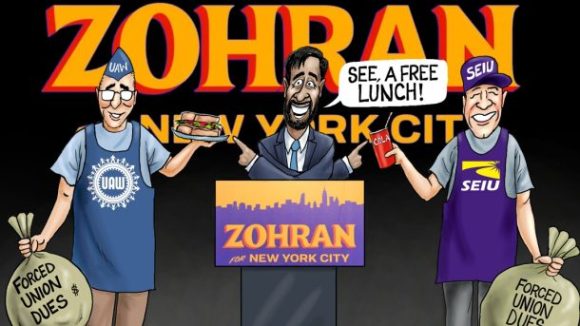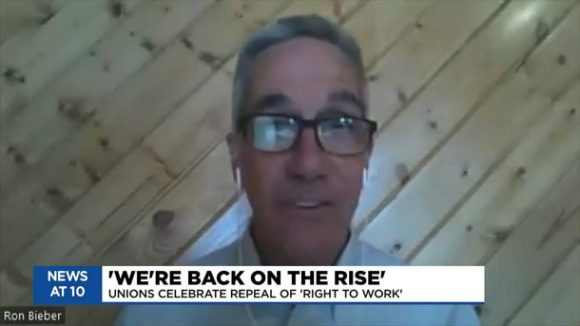Is This What Josh Hawley Wants For Workers?
Teamster Bullies Finished Off Yellow Corp., Have UPS Struggling
From Forbes Magazine:
At least the individual income tax reduction makes Kentucky more competitive, right?
While Governor Beshear’s plan simplifies tax brackets and lowers rates, it does not address the issue of municipal income tax rates in Kentucky. Eight cities currently levy an income tax on residents and non-residents – a tax structure similar to that of Detroit, Michigan. Louisville, for example, levies a personal income tax rate of 2.2 percent for residents and 1.45 percent for non-residents, resulting in a total state tax burden of 8.2 percent for those living within city limits. That’s just 0.62 percent less than New York, the most heavily taxed state in the U.S. A reduced income tax rate of 5.75 percent for middle-class families making over $50,000 a year does little to alleviate the total tax burden once city taxes are factored into the equation.
According to Internal Revenue Service data contained with How Money Walks, Kentuckians are leaving their state for more tax-friendly states such as Florida, Tennessee, North Carolina (which reduced income tax rate in 2013 to 5.8 percent), South Carolina, and Texas. Based on calculations from www.SaveTaxesByMoving.com, a sales representative (wholesale and manufacturing, technical and scientific products) making $89,440 (Bureau of Labor Statistics) a year could earn over $800,000 more in his or her lifetime by moving from Louisville, Kentucky to Jacksonville, Florida. Is it any wonder why Florida is the number one destination over the past 18 years for working wealth from the Bluegrass State?

Teamster Bullies Finished Off Yellow Corp., Have UPS Struggling

“The fact is, openly socialist American politicians like U.S. Sen. Bernie Sanders [IVt.], U.S. Rep. Alexandria Ocasio-Cortez [D-N.Y.], and now Zohran Mamdani also turn out to be rabid advocates of corralling workers into unions.

Since Big Labor-backed legislation repealing Right to Work protections for employees went into effect in early 2024, the state has gone from adding jobs to losing them.